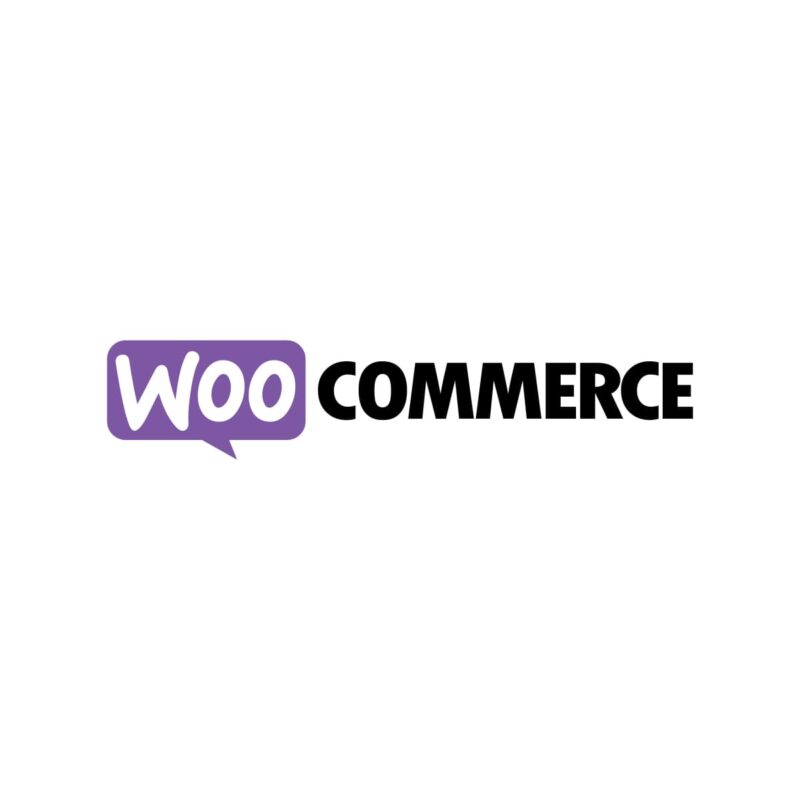Key Features of WooCommerce E-Commerce Platforms Software
WooCommerce stands as a pivotal solution in the e-commerce platforms software arena, renowned for its flexibility, user-friendly interface, and seamless integration capabilities. Originating as an open-source plugin for WordPress, it transforms any WordPress site into a fully functional online store, allowing businesses of all sizes to sell their products and services with ease. This comprehensive review delves into the unique features that set WooCommerce apart, highlighting its significance for entrepreneurs and businesses venturing into the online marketplace.
Core Features
1. Open-Source Nature: WooCommerce is distinguished by its open-source framework, offering unparalleled customization and flexibility. Users can modify and extend the platform to meet their specific business requirements, from aesthetic alterations to functional enhancements.
2. Seamless WordPress Integration: As a WordPress plugin, WooCommerce provides a smooth integration, leveraging the power of the world’s most popular content management system. This synergy allows for the creation of a cohesive online presence, combining e-commerce functionality with content-rich experiences.
3. Extensive Product Options: WooCommerce supports a wide range of product types, including physical, digital, and subscription-based offerings. Its versatile product management system enables sellers to easily categorize products, manage inventory, and set up attributes like size and color.
4. Comprehensive Payment Solutions: The platform supports a multitude of payment gateways, from traditional options like PayPal and Stripe to specific regional payment methods. This flexibility ensures that businesses can cater to the preferences of their diverse customer base.
5. Advanced Customization with Themes and Plugins: The WooCommerce ecosystem is bolstered by a vast selection of themes and plugins, enabling users to tailor their online stores to their unique brand identity and functionality requirements. Whether it’s optimizing checkout processes or enhancing product displays, the possibilities for customization are vast.
6. Robust Analytics and Reporting: WooCommerce offers built-in analytics and reporting tools that provide insights into sales performance, customer demographics, and inventory levels. These analytics are crucial for informed decision-making and strategic planning.
7. Scalability: WooCommerce is designed to grow with your business. Whether starting with a handful of products or scaling up to thousands, the platform can accommodate the evolving needs of an expanding online store.
Unique Selling Points
- SEO Optimization: Given its WordPress roots, WooCommerce benefits from excellent SEO capabilities, helping businesses improve their search engine rankings and attract more organic traffic.
- Community and Support: With a vast and active community, WooCommerce users benefit from extensive support forums, documentation, and third-party resources. This community-driven approach fosters innovation and provides valuable assistance.
- Cost-Effectiveness: Being a free plugin, WooCommerce offers an economical entry point for businesses to establish an online presence. While additional costs may arise for hosting, themes, and extensions, the overall affordability of WooCommerce makes it an attractive option for startups and SMEs.
Conclusion
WooCommerce embodies a powerful, adaptable, and cost-effective solution for businesses seeking to venture into e-commerce or expand their online sales channels. Its strengths lie in its integration with WordPress, extensive customization options, and a strong community support system. By harnessing the capabilities of WooCommerce, businesses can create compelling online stores that cater to the diverse needs of their customers, ensuring a robust and scalable e-commerce platform.
Performance
WooCommerce’s performance in day-to-day usage is a critical consideration for businesses relying on e-commerce platforms to drive sales and manage their online presence. Its integration into WordPress, an extensively used content management system, positions WooCommerce uniquely for users familiar with or already leveraging WordPress for their websites. This discussion aims to provide a detailed analysis of WooCommerce’s performance, focusing on its operational efficiency, scalability, user experience, and maintenance requirements.
Operational Efficiency
WooCommerce is designed to be lightweight and efficient out of the box, ensuring that it does not significantly impact the loading times of websites. However, the platform’s performance can be influenced by various factors including the hosting environment, the number of plugins installed, and the complexity of the themes used. For optimal performance, it is recommended to use a hosting service that specializes in WordPress, apply performance optimization practices such as caching, and limit the use of resource-intensive plugins.
Scalability
One of WooCommerce’s notable strengths is its scalability. It can handle stores ranging from a few products to several thousand, accommodating the growth of a business without requiring a platform change. The key to maintaining performance while scaling up involves regular monitoring of site resources, optimizing the database, and possibly upgrading hosting plans to manage increased traffic and transactions smoothly.
User Experience
For store owners and managers, WooCommerce provides a user-friendly backend interface, allowing for easy management of inventory, orders, and customer data. The learning curve is relatively gentle for those already familiar with WordPress. On the customer front, the shopping experience is highly customizable via themes and plugins, enabling businesses to offer a seamless and engaging user journey from product discovery to checkout.
Maintenance and Support
Regular maintenance is required to ensure WooCommerce runs efficiently. This includes updating the core plugin, themes, and extensions to their latest versions to safeguard against security vulnerabilities and improve performance. Given its open-source nature, WooCommerce benefits from a robust community and ecosystem, offering extensive documentation, forums, and professional support services for troubleshooting and optimization advice.
Potential Performance Challenges
- High Plugin Dependency: The reliance on multiple plugins for extended functionality can lead to potential performance bottlenecks. It’s crucial to carefully select and regularly evaluate plugins based on their impact on site speed and reliability.
- Customization Complexity: While customization is a strength, it can also be a double-edged sword. Highly customized sites may require more resources to maintain and update, particularly if custom code is involved.
- Security: As with any e-commerce platform, security is paramount. Regular updates and security practices are necessary to protect customer data and ensure a secure shopping environment.
Conclusion
WooCommerce stands out for its adaptability, user-friendly management interface, and scalability, making it a compelling choice for businesses of all sizes. Its performance in day-to-day operations can meet and exceed expectations with proper setup, optimization, and maintenance. However, potential challenges such as the need for plugin management and customization considerations require attention to ensure smooth operation. Overall, WooCommerce provides a robust foundation for building and scaling an e-commerce business within the WordPress ecosystem, offering a balance of flexibility, performance, and user experience.
Pros
Cons
WooCommerce presents a powerful option for businesses looking to leverage WordPress for e-commerce, offering flexibility, scalability, and a strong community. However, it demands a commitment to ongoing maintenance, optimization, and security practices. The choice to use WooCommerce should be informed by a business’s specific needs, resources, and long-term e-commerce strategy, balancing the platform’s extensive capabilities against the potential complexities and costs involved.
Conclusion
WooCommerce’s Standout Features
Open-Source Flexibility: Unlike proprietary e-commerce platforms, WooCommerce’s open-source nature provides unparalleled flexibility, allowing businesses to tailor every aspect of their online store. This flexibility is not just limited to aesthetic customization but extends to deep functional modifications that can be achieved through the extensive plugin ecosystem or custom development.
Seamless WordPress Integration: The seamless integration with WordPress is a significant advantage, leveraging the strength of the world’s leading content management system. This synergy allows businesses to manage both content and commerce efficiently, enhancing SEO and content marketing strategies.
Scalability and Performance: From my perspective, the scalability of WooCommerce is a key differentiator. It adeptly accommodates growth, from small startups to large enterprises, without sacrificing performance. However, achieving optimal performance requires a strategic approach to hosting, caching, and database management, areas where my expertise particularly shines.
Unique Perspective on WooCommerce
Adaptation to Market Trends: My analysis of WooCommerce includes its responsiveness to evolving market trends, such as the increasing importance of mobile commerce, the integration of AI and machine learning for personalized shopping experiences, and the need for robust security measures in an era of heightened cyber threats.
Ecosystem and Community Support: The vibrant community surrounding WooCommerce is a testament to its versatility and reliability. This community not only drives the platform’s innovation but also offers a safety net of support. Through forums, plugins, and professional services, users have access to a wealth of resources that facilitate problem-solving and optimization.
Cost-Effectiveness Versus Total Cost of Ownership: While WooCommerce is free to use, my expertise leads me to advise clients on the total cost of ownership, considering factors such as hosting, extensions, and custom development. This comprehensive approach ensures that businesses can make informed decisions that align with their budget and growth objectives.
Conclusion
WooCommerce represents a powerful blend of flexibility, scalability, and integration capabilities, making it an excellent choice for businesses leveraging WordPress. My unique perspective, grounded in extensive experience and a keen understanding of the digital commerce landscape, underscores WooCommerce’s potential to drive successful e-commerce ventures. Through strategic implementation and optimization, businesses can harness WooCommerce’s capabilities to achieve remarkable online retail success.





